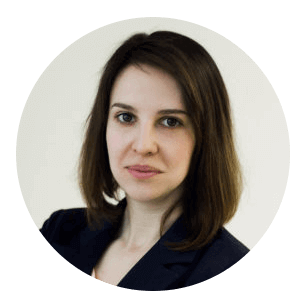Since the day we talked with Margaret Pagel about sales principles she laid out for her 100-emoloyeer US custom software development company, I wondered how smaller dev shops manage to get clients – without referring to freelance websites favored by many outsourcers and small dev teams. Do the same marketing rules that work for medium-to-large businesses are also applicable for 10-20-person development service providers?
It turns out major sales rules are similar, though a mix of specialization with community-oriented initiatives may provide big advantages for a small development company.
Tami Reiss is my guest to prove it. She is a CEO at Cyrus Innovation – New York-based development firm founded in 2003 with roughly 12 employees.
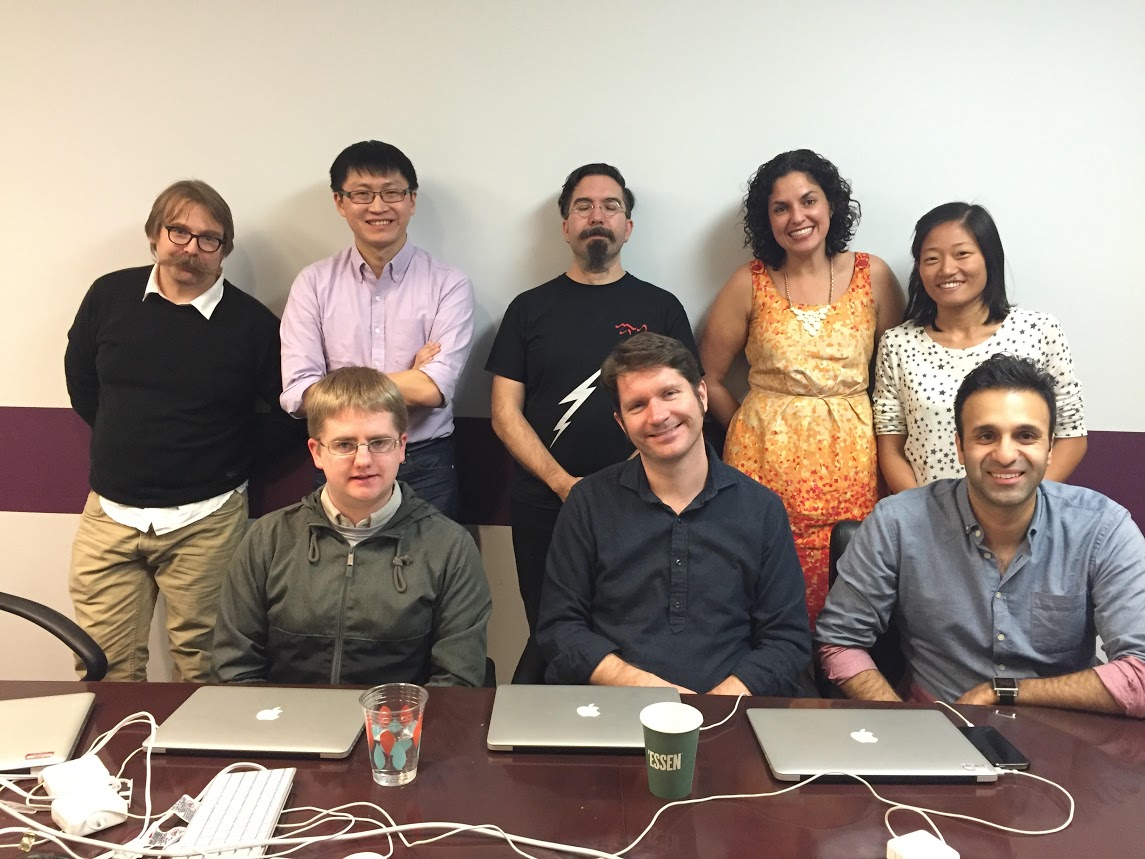
Image courtesy of Cyrus Innovation
About Company
– Tami, I know you joined Cyrus Innovation as a CEO a year ago. What are you expected to fine-tune?
That’s correct. My efforts to grow our company encompasses 3 big pillars:
- Growth initiatives. Finding companies we can work with and become their development partner is a big part of my job. We recently added multi-platform mobile practice which is a brand new area for us. Defining how we communicate this new offering to existing and prospective clients falls on my plate.
- Staff Development. Cyrus is in the business of people. Therefore, we invest a lot of time and money in our team learning about new technologies, best practices in software development, and consulting skills. I also meet with each individual engineer to learn what they are interested in and attempt to match them appropriately with our clients.
- Partnerships. Because our senior engineers focus mainly on coding business logic and building out complex backend solutions, we often partner with design agencies gravitating towards aesthetics. We also launched a Diversity Apprenticeship program for which we’ve partnered with local development bootcamps to get candidates.
– Why did you choose that specific company?
New York is large, but small at the same time. When you have been working in that space for a couple of years you get to know other people. I’ve known the board of directors of Cyrus Innovation for a while, we socialize at the same events and have the same network of people we call friends.
When the opportunity came up because I was looking for a transition to another role, it just happened that they invited me and so far it’s really worked out.
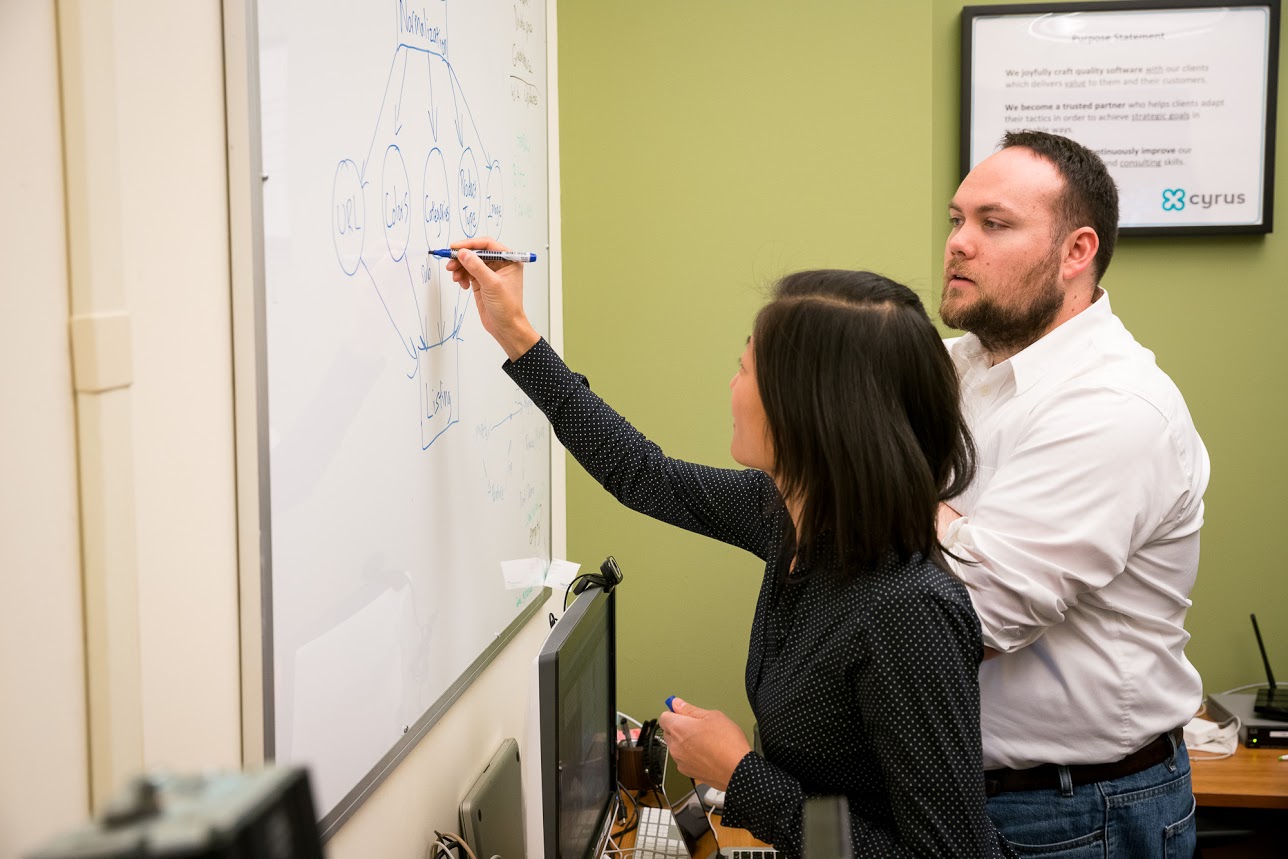
Image courtesy of Cyrus Innovation
– Where do the biggest portion of Cyrus clients live?
Most of the business we do is in New York and the majority of our clients are locals. We are used to collocate our engineers to work with clients’ teams side by side to always be at hand during product development phases.
– Does Cyrus favor any particular sort of clients or projects?
Our clients vary. We have enterprise customers and work with mid-size companies, with startups of various stages, so it’s really hard to tell what’s ideal for us.
We don’t target specific types of clients, we are more project-focused. If it’s a very cool project and it offers new opportunities for us to be innovative – that’s the priority.
– On the website it’s told that Cyrus Innovation is “women’s most trusted software development partner”. How does this ‘woman orientation’ affect the work process? How do your clients react to it?
I am a woman CEO, but we are owned by a private equity firm. We are not founded by a woman, but we do have initiatives where we are very supportive of women change makers. We have series of programs that help women founders get products out fast at a price that’s easy for them.
Most clients have embraced our female founder and Diversity Apprenticeship initiatives.
We are well networked with the community and do a lot of engagement and outreach, so I don’t think it’s something that hinders us. We think of it as a differentiator that we care about more than staffing projects.

Image courtesy of Cyrus Innovation
Marketing and Sales
– Let’s move on to sales. How big is sales department of Cyrus?
I am the sales department. We are a small team: we have 8 senior developers on staff and several people on operations – me, the director of finance/operations, and an HR assistant.
Nevertheless, we have been working for 13 years, so we are well known and well established in the space. We are hiring a sales account executive to help with prospect development and pre-qualification.
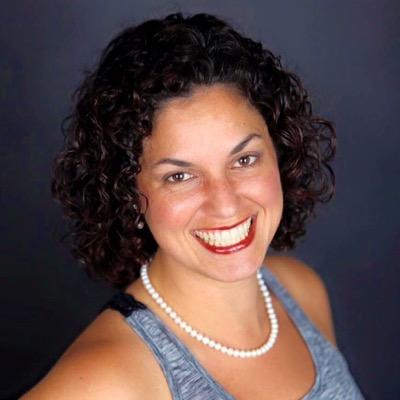
Tami Reiss, a CEO at Cyrus Innovation
– Are you also the only one responsible for marketing?
Yes.
– Maybe you can share what works for Cyrus in terms of sales and marketing?
We put out a newsletter that goes out monthly as an engagement piece. We do quarterly events and they are around different themes.
For instance, a month ago we did a very successful event for one of our partners on Agile at scale and what it means for organizations – who have teams across multiple locations – how to keep teams aligned and workflow going.
We sponsor conferences that are on Agile. We are very active in the local tech community. We go and support our friends from other companies that are having events, we speak for them on our panels, and we keep in touch with what’s happening. That has, probably, the biggest influence in that type of business we are able to generate.
– Does it mean that Cyrus wins clients through active socializing?
You are right. The biggest proponent of our success are the referrals and word of mouth – that’s something we want to amplify and that is why are very active in the local community.
Three of our current clients came to us through referrals from our competitors.
Numbers and Processes
We get a lot of leads, a lot of interest. Things that come out of that – moving beyond the conversation into an actual scoping and working through the funnel – are a lot smaller. I would say the really great qualified leads are anywhere from 2 to 4 per week.
– What criteria do you use to qualify leads?
They are pretty standard for many organizations:
- Do they have a specified need?
- Are they building something we’re qualified to help with?
- Do they have budget?
- Do they have authorization to say “Yes”?
- Do they have a reasonable timeline?
- Is this something they want to move on now?
– How long is your sales cycle?
It depends on the complexity of the project. If it’s an engagement that can take up to 6-8 months, it’s going to be a sales cycles of 3 months to close because there are several layers of approval you have to go through. If it’s a 4-6-week engagement, that could take a only a week or so.
We do not chase leads for months – it’s not productive and preventing us from moving with other opportunities.
– What are the most typical objections leads vocalize?
Prospects want things done fast for the least amount of money at the highest amount of quality. You can’t have all three. For any type of deal you have to choose the two that are most important.
If time and money are important to you, than you are going to suffer on quality. If you want something done at a high quality and are willing to invest, you will probably get better end results.
We provide developers that are passionate about quality, crafted code, so we’ll never be the cheapest option.
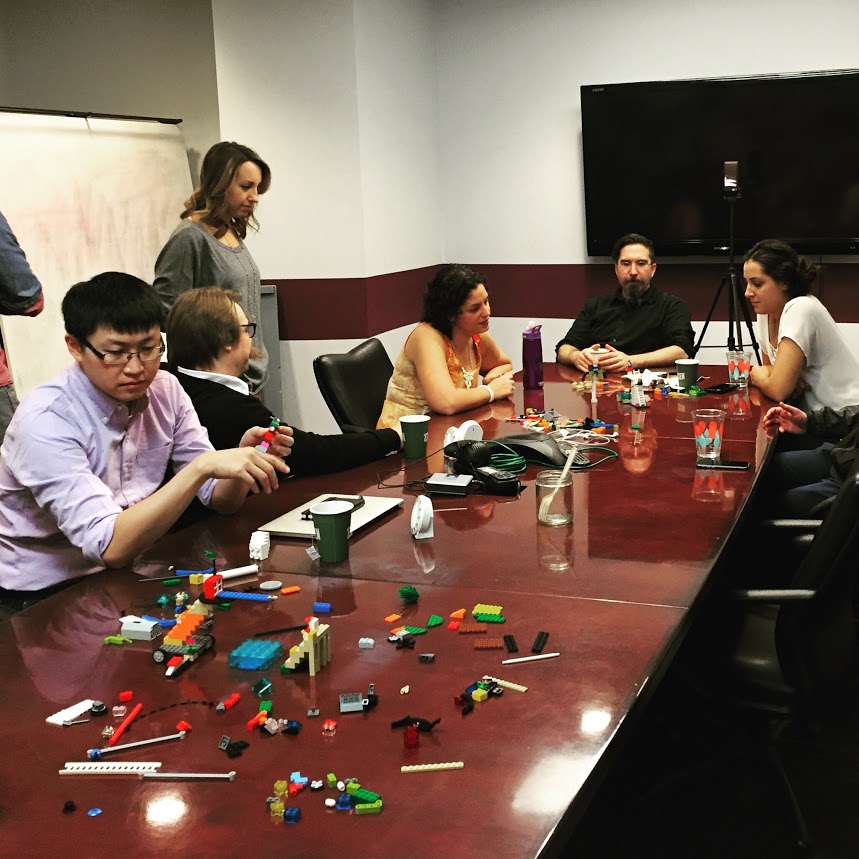
Image courtesy of Cyrus Innovation
– How many projects does Cyrus handle at one time?
Currently we have 6 projects, but their number varies greatly. For planning and budgetary purposes we favor projects with longer engagement, so we know that we are going to have X amount of developers working on this particular project for 6-8 months. That also gives us the bandwidth for smaller projects with shorter-term engagement.
– Has Cyrus ever partnered with digital agencies that help grow sales?
Yes. Occasionally, we’ll partner with a design firm that needs a consultancy like Cyrus to build the applications they have designed.
Best Practices and Personal Challenges
– What secrets help you close deals?
We have a great reputation in NYC and continue to satisfy our customers with great code and service.
All of our development is done in New York and we don’t offshore anything – we don’t involve European developers or programmers from India or South America for better prices.
Don’t get me wrong, we have nothing against European developers. Our development team advocates for fast feedback loops and working side by side with a client is the best way to do that.
Additionally, we are not only building products, we are teaching customers how to maintain them once they are built. That’s what separates us from other shops that are cheaper and utilize offshore talents.
– What is the most challenging for you in IT business?
I’m technically literate, but not an engineer or IT person. I have worked in the tech industry for a decade, but there’s so much that changes every day, that not being enmeshed in tech can limit my ability to sell.
When I’m talking with CTOs and VPs of Technology, those conversations are definitely different and it can be challenge because sometimes the level of detail is over my head. At those times, we bring in an engineer who has technical background to better understand the challenges the prospect has.
If I am speaking to a CEO of a tech company, I have to be able to articulate the business value – why they should choose Cyrus as their development partner and no additional help is needed.
– My last question. What is the most rewarding thing for you?
When we make our clients happy. This past week we launched a new portal for a charity that will help them receive donations in a more effective way. Last week we introduced a mobile app for a local park. We get at least one nice note a week about Just Not Sorry and the positive impact it’s had on someone’s communication. Technology is very powerful, it’s great to use it for good.
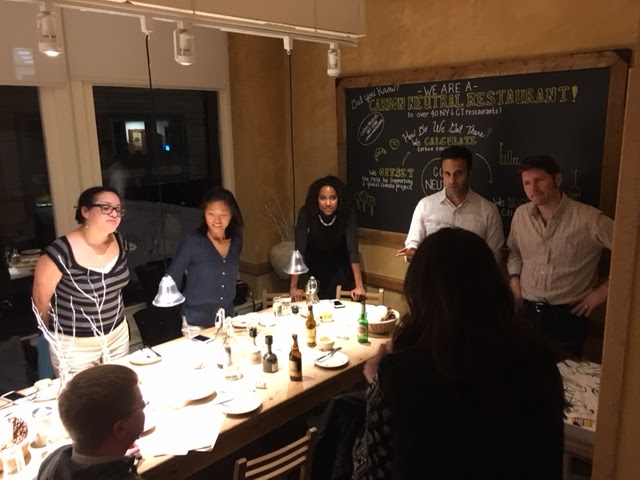
Image courtesy of Cyrus Innovation
